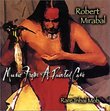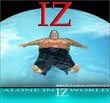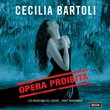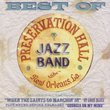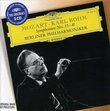| All Artists: Zbigniew Preisner, Marek Mós, Aukso Orchestra, Teresa Salgueiro, Tom Cully, John Parricelli, Mitchell Dalton, Alasdair Malloy, Konrad Mastylo Title: Silence, Night & Dreams Members Wishing: 4 Total Copies: 0 Label: EMI Classics Original Release Date: 1/1/2007 Re-Release Date: 9/18/2007 Album Type: Enhanced Genres: Pop, Soundtracks Style: Vocal Pop Number of Discs: 1 SwapaCD Credits: 1 UPC: 094639399925 |
Search - Zbigniew Preisner, Marek Mós, Aukso Orchestra :: Silence, Night & Dreams
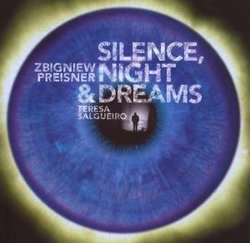 | Zbigniew Preisner, Marek Mós, Aukso Orchestra Silence, Night & Dreams Genres: Pop, Soundtracks
|
Larger Image |
CD DetailsSimilarly Requested CDs
|
CD ReviewsTime, perchance , before the dream A Reader | La Jolla, CA United States | 12/03/2007 (5 out of 5 stars) "This is late-night music. Light a fire, a candle, turn off the lights, then settle back to listen. I think it's very moving music indeed. You yourself might not be moved, but you will be transported. Listeners might be most familiar with composer Zbigniew Preisner through his association with the great filmmaker Krzystof Kieslowski (The Three Colours trilogy of "White," "Blue," and "Red"; "Double Life of Veronique," etc.); or perhaps through his classic impassioned tribute to that director, "Requiem For My Friend;" or perhaps his "10 Easy Pieces for Piano." His work is always lyrical, harmonic, atmospheric and evocative, never overwrought. He seems to me to use music not so much for background but as nudge. "Silence, Night & Dreams" is primarily contemplative music, much like the Biblical Book of Job which it quotes and has as its inspiration. A bit of melancholy, yes, though a lot comforting. Through his art and skill, Preisner has made us a gift. The sound is orchestral and choral, a bit churchlike, with angelic soprano work by Teresa Salgueiro (of Portugal's Madredeus) (sorry about the cliché, but here it's so apt). It is spacious music. Not at all lush, but rich -- made with room for a listener to actually experience silence, night and dreams. The CD starts with the sound of a crackling fire, and so begins an audio experience of contemplation that's much like staring into a blazing hearth. Straight into the hearth of the matter. Winter night music. For a time when there's no more work to be done, no more "doing." But is it all just atmosphere -- "mood music"? I sure don't think so, and anyone familiar with the work of Preisner (and obviously what he did with Kieslowski's films) wouldn't expect so. It's music doing what music can almost do best: spur one into one's own contemplations, not hanging onto the coattails of the written or spoken words of someone, where we are asked to literally follow along. Listening to music only provides inspiration, along with time, allowing a perhaps more intimate, personal and possibly more honest introspection. As the development of technology and our culture hurtle increasingly faster along there's not much time given for introspection, moments spent to find our place and perspective in "the scheme of things." We continue to create technology that provides the illusion of contact and interaction. In such a short time, we've almost forgotten what the real thing is. Preisner weaves choral-textured melodies (both sung and not sung), working the ambience of the piece, drawing a listener into it and thus inside herself. After a short vocal introduction (Perchance), a thematic melody forms -- a piano sounding artificial, warbling and unsure, then resolving into some kind of organic whole, focused, as the work's contemplation truly begins. It's music of reverence, yes, an aural cathedral... a service, but without the ceremony. After the title track, each section represents stages of an inquiry, exploring what it is "to speak," "to dream," "to find," "to know," "to die"... And, well, after that what is there left but to say in benediction, "be faithful, go" ("be not afraid" is the refrain). Yet Preisner is not quite finished. Maybe the only way possible for us to be faithful -- let alone to take another step, to return from such an inquiry -- is "to love," the name of the final, resolving piece: unique and beautiful, with exquisitely fine-played acoustic guitars. These unsung words Preisner add as postscript: "Let us take heed of Job [and of Preisner, I'd add]. Then maybe we'll prevail against the slogans, the labels, illusions and indifference, the cradles that surround us." The nightmares, the soft monsters, we have devised. Notice how Preisner creates sound: a musical thought develops and then settles back, allowing for its effect to develop. It's the kind of music your heart makes when your mind is still, as when gazing into logs burning in a fireplace at the end of long day, when comfort might be brought to you by the simplest things. SN&D is of that kind -- contemplative, comforting, simple and profound in its way. It feels like hand-hewn music -- you feel the hand in it, the tools that made their mark, the beauty of something so carefully made, a lifetime of craft and honing attention, and then the beauty of the organic thing that's made. You feel it all. The kind of thoughts that human beings have made for tens of thousands of years (if not more), and the simple beauty of it -- the profound, sacred sense of how we are connected. Thoughtful readers of Job know this. And always there has been music -- accompanying our thoughts, our aspirations, our despair, providing outlet and inlet. It's music you'd want after a day of hard labor, a day made one breath after another, working just to make ends meet but always wondering now at the end of the day just why it has to be so hard... what it's all for? Although this is very much Preisner's music, in a way the star of the work (the light) comes from the voice of Teresa Salgueiro. It's an exquisite use of her voice (and spirit): simple, pure, undisturbed by vibrato or ornamentation. She adds a clear, ethereal touch of the heart to the flesh here, reanimating the music. Preisner also makes fine use of the voice of boy treble Tom Cully singing the English texts. Preisner uses other instruments equally well toward that order: glass harmonica (!) and recorder (which go so well together that it was to this reviewer a revelation, like chocolate and raspberries), vibraphone, harp, and low strings. This is not classical music though it feels like it, yet it's so visual. A soundscape. Preisner himself describes it as "music for a non-existent movie." He just creates the space... We provide the context. Highly recommended. (I find no similarity between "Silence, Night & Dreams" and New Age music like "Adiemus" (Jenkins & Stockley). There's much more thought and feeling evident than emotion here. But those who enjoy Preisner however might also appreciate the music of Max Richter, Johann Johannsson, Hilmar Orn Hilmarsson, and Dustin O'Halloran.)" Glorious J. Odell | St. Louis Mo. | 01/12/2008 (5 out of 5 stars) " This simple but gloriously sublime music got me through the holidays. I first heard this music on Hearts of Space and knew I had to hear more, so I purchased this CD on Amazon. I will track down any and all music composed by Zbigniew Preisner. His misic calls to me - which is what music is all about after all." To like Preisner is to NEED this album! crown of indica | saint paul,mn,usa | 01/09/2009 (5 out of 5 stars) "Preisner's personal and intimate orchestrations have never been better, more atmospheric, or more touching than they are here. This is the first album that I've been taken aback by in a loooong time; it's absolutely perfect in every way. The vocalist doesn't over-do himself and fits the tones without drawing away from them. As others have mentioned, this is a "small moment" album that works best by yourself in a quiet, intimate setting. I don't know much about the mechanics of music, but this album does what it intends to do without using the listener as a mere tool."
|

 Track Listings (9) - Disc #1
Track Listings (9) - Disc #1

